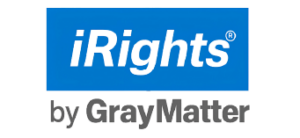The most comprehensive, billing, collections, and financial management software in the entertainment industry.
iCash integrates into iRights (rights management software) as the financial arm that handles all invoicing, billing, collections, financial reporting, banking, producer reporting, income recognition, and interfaces to financial systems. The goal of the iRights and iCash system is to always maintain a complete and accurate picture of all income and expense broken down by transaction, license, and title (and to right and territory if so specified in the invoice).






